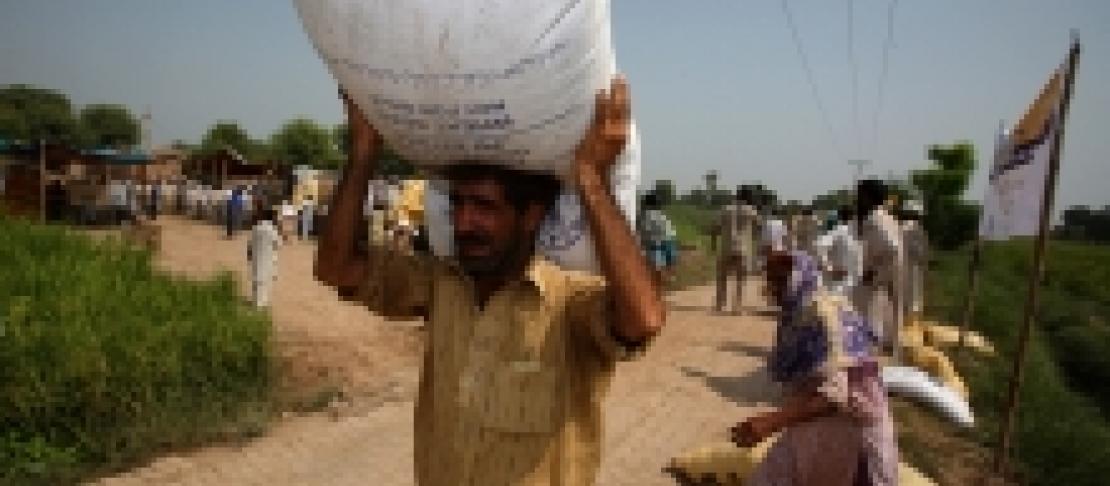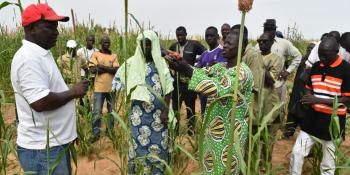Pakistani flood puts food security at risk

Recent news in Pakistan demonstrates the strong need for better water management in the future, as well as crops better bred to withstand not just heat and drought, but also floods. As climate change leads to more precipitation variability--and, in many areas, seasons of intense rain--farmers need infrastructure to capture and store rainwater; methods to distribute water to drier areas; strategies to better keep fertile soil in place; and flood-resistant seeds/crops.
Some excerpts from the FAO article from Sept. 1, 2010:
"FAO today called for more international funds to save the upcoming wheat planting season in Pakistan where floods covering land half the size of Italy have wiped out much of the country's household wheat seed stocks.
Wheat, the staple food of the rural poor in Pakistan, is due to be planted in September through to November. More than half a million tonnes of wheat seed stocks have been destroyed by the floods....
'Unless people get seeds over the next few weeks they will not be able to plant wheat for a year,' said Daniele Donati, Chief, FAO Emergency Operations, Asia, Near East, Europe and Special Emergencies. 'Food aid alone will not be enough. If the next wheat crop is not salvaged, the food security of millions will be at risk.'
....Early estimates show that 3.6 million hectares of standing maize, rice, sugar cane and cotton crops were destroyed in the floods that have displaced millions of people.
....In addition, an estimated 1.2 million livestock and 6 million poultry were lost in the flooding. It is estimated that over one million buffalo, cattle, sheep and goats owned by households in the flooded areas will now face starvation if animal feed is not provided to them urgently.
Animals also need immediate vaccination for diseases like foot-and-mouth disease and Peste des Petits Ruminants - with people and herds on the move as they flee the flooded areas, the risk of animal diseases spreading is great."
Photo credit: FAO


